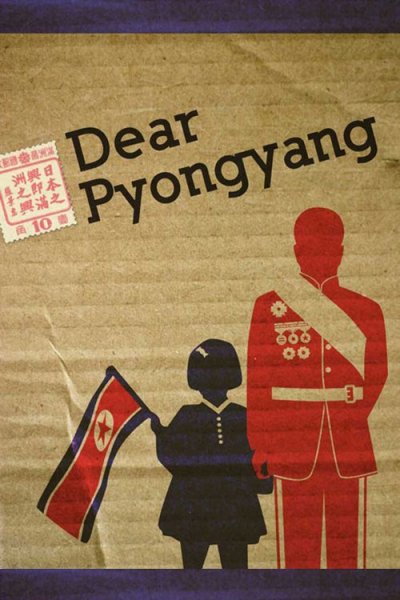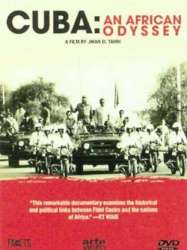Dear Pyongyang is a film of genre Documentary directed by Yang Yong-hi released in USA on 23 january 2006
Dear Pyongyang (2006)

If you like this film, let us know!
Dear Pyongyang is a documentary film by Zainichi Korean director Yang Yong-hi (Korean: 양영희, Hanja: 梁英姬) about her own family. Shot in Osaka Japan (Yang's hometown) and Pyongyang, North Korea, the film features Korean and Japanese dialogue with subtitles. The US release also has Korean and Japanese dialogue, but with added English subtitles. In August 2006, Yang also released a book in Japanese under the same title expanding on the themes she explored in the film.
Comments
Leave comment :
Suggestions of similar film to Dear Pyongyang
There are 1 films with the same director, 8965 with the same cinematographic genres, 6889 films with the same themes (including 3827 films with the same 2 themes than Dear Pyongyang), to have finally 70 suggestions of similar films.If you liked Dear Pyongyang, you will probably like those similar films :

Gold of the Seas (1933)
Directed by Jean Epstein
Origin France
Genres Drama, Documentary
Themes Seafaring films, Transport films
Rating63%





Ce docufiction montre le quotidien des habitants de l'île d'Hoédic dans le Morbihan. Une histoire d'amour et une légende fantastique s'entremêlent dans cet essai cinématographique.

God is American (2007)
, 52minutesDirected by Richard Martin-Jordan
Origin France
Genres Documentary
Themes Seafaring films, Films about religion, Transport films, Documentary films about religion
Rating66%





Since the end of World War II in 1945, the people of Tanna, a remote and isolated island in the south Pacific Ocean, worship an American prophet, John Frum. The islanders believe he is an American pilot that returned to the United States after the end of the world war, and will come back to Tanna with riches and valuable souvenirs from the United States that they call "the cargo". They pray to an American flag, awaiting his return. One man, Isaac the Last One, chief of the "Cargo Cult", claims he is Frum's son. He has formed an army of GIs to celebrate and proclaim the return of the Frum.

Cuba: An African Odyssey (2007)
, 1h58Origin France
Genres Documentary
Themes Seafaring films, Transport films, Documentary films about war, Documentary films about historical events, Political films
Rating80%





During the Cold War, four adversaries with conflicting interests face off in the African continent: the Soviets want to expand their influence; the United States intend to appropriate the continent's natural riches; the former empires seek to revive their shaky colonial power; and the young nations defend their newly-won independence, armed with an ideal: internationalism. African revolutionaries like Patrice Lumumba, Amílcar Cabral and Agostinho Neto call on Cuban guerrillas to help them in their struggle. Cuba will play a central role on the continent. From Che Guevara's tragicomic epic in the Congo up to the triumph of the Battle of Cuito Cuanavale in Angola, this film tells the story of the internationalists whose saga is at the basis of today's word: they won all the battles, but end up losing the war.

The White Planet (2006)
, 1h20Directed by Thierry Ragobert
Origin Canada
Genres Documentary
Themes Films about animals, Environmental films, Seafaring films, Transport films, Cétacé, Documentary films about environmental issues, Documentary films about nature, Mise en scène d'un cétacé
Rating67%





Sous la poussée de forces invisibles, la banquise se brise. Les bœufs musqués courbent l'échine sous le blizzard. Les caribous galopent par milliers dans la toundra. Les ours blancs se défient. Les baleines boréales défoncent la banquise. Le narval dresse hors de l'eau son incroyable dent torsadée.
 , 53minutes
, 53minutesGenres Documentary
Themes Seafaring films, Transport films, Documentary films about war, Documentary films about historical events, Documentary films about technology, Political films, Documentary films about World War II, Disaster films, Films about seafaring accidents or incidents

Origin United-kingdom
Genres Documentary
Themes Seafaring films, Films about sexuality, Transport films
Rating77%






Deep Water (2006)
, 1h32Origin United-kingdom
Genres Drama, Documentary, Action, Adventure
Themes Seafaring films, Sports films, Transport films, Documentary films about sports, Documentary films about technology
Actors Jean Badin, Tilda Swinton, Simon Russell Beale
Rating77%





Un couple qui ne s'aime plus fait un accord: la femme aura le droit d'avoir des amants. Bientôt, ces amants commencent à disparaitre l'un après l'autre.
 , 52minutes
, 52minutesGenres Documentary, Musical
Themes Films set in Africa, Seafaring films, Films about music and musicians, Transport films, Documentary films about music and musicians, Documentaire sur une personnalité, Musical films
African slaves were first brought to Cape Verde by Portuguese settlers in 1462. These slaves brought with them the cultural rhythm and music which would become Batuque: a musical form punctuated by drums while participants danced in a circle. The dance, repressed during the Colonial era, has been adopted as a symbol of the Cape Verdan cultural identity. The film seeks to document the dance form through interviews and performance by the musical group Raiz di Tambarina.

No More Tears Sister (2005)
, 1h18Genres Documentary
Themes Seafaring films, Transport films, Documentary films about law, Documentary films about war, Documentary films about historical events, Documentaire sur une personnalité, Documentary films about politics, Political films
Rating66%





 , 1h18
, 1h18Origin USA
Genres Documentary
Themes Seafaring films, Transport films, Documentary films about the visual arts, Documentaire sur une personnalité, Documentary films about technology
Actors Wim T. Schippers, Frans Bromet
Rating81%





 Connection
Connection